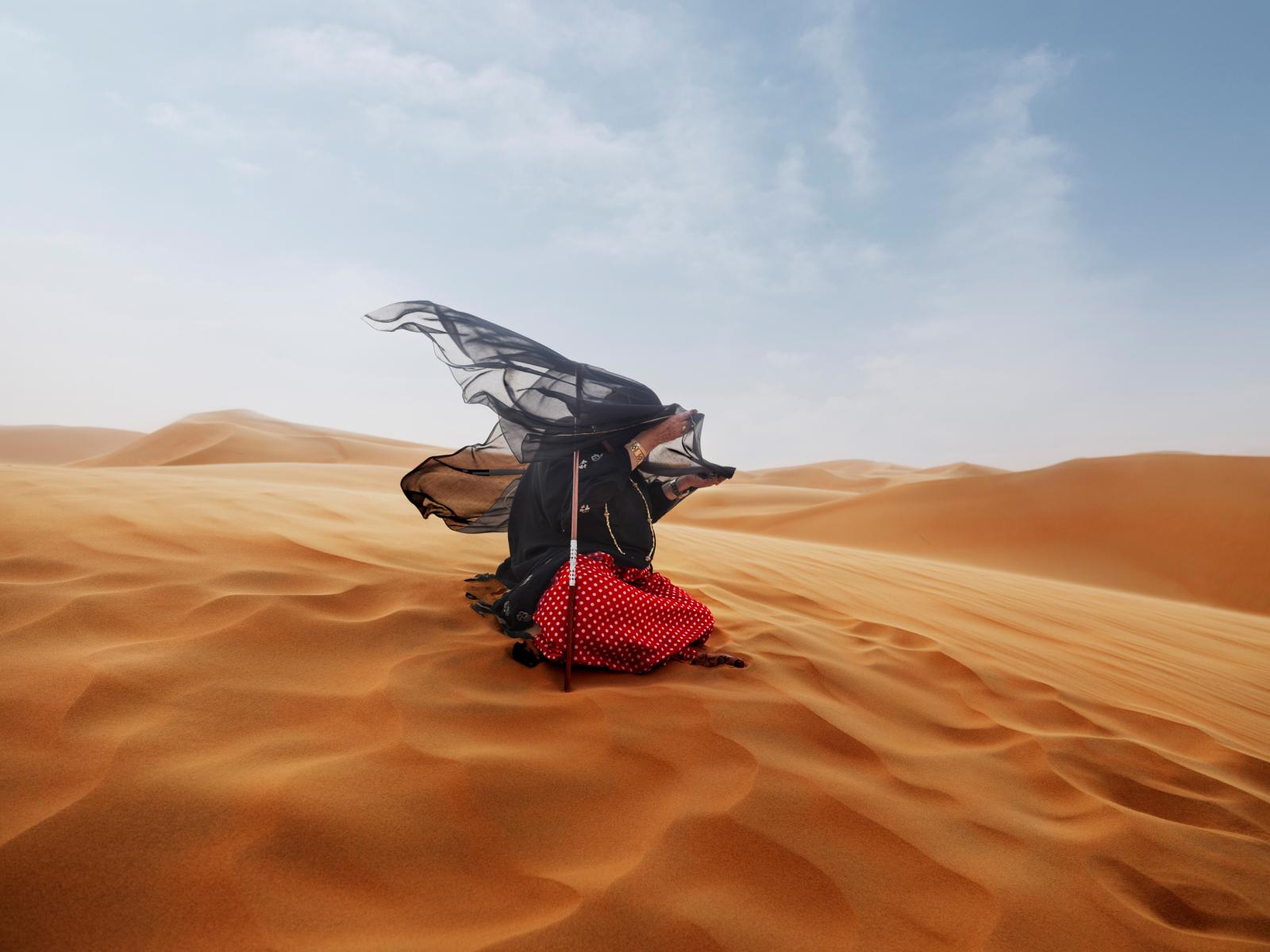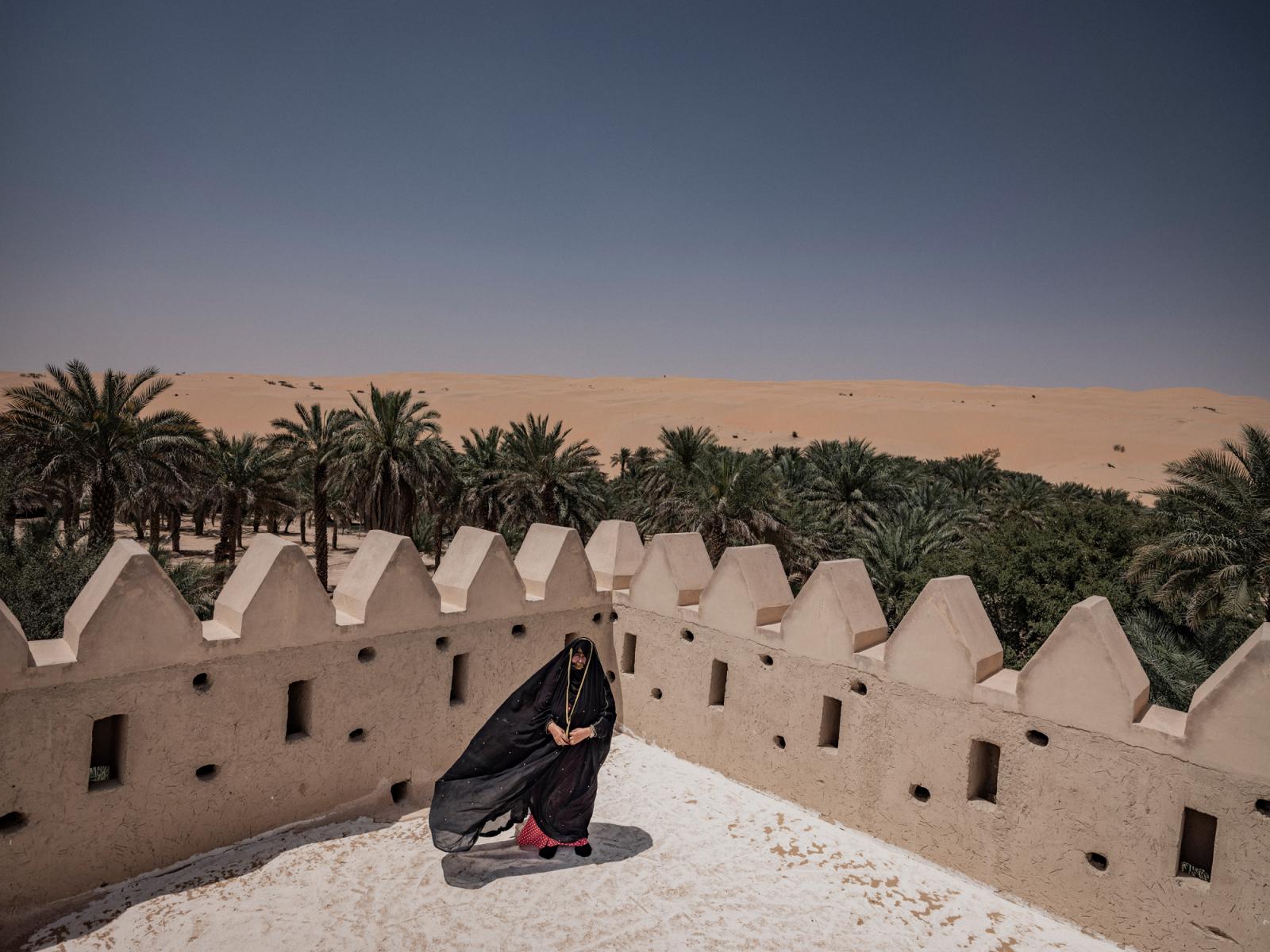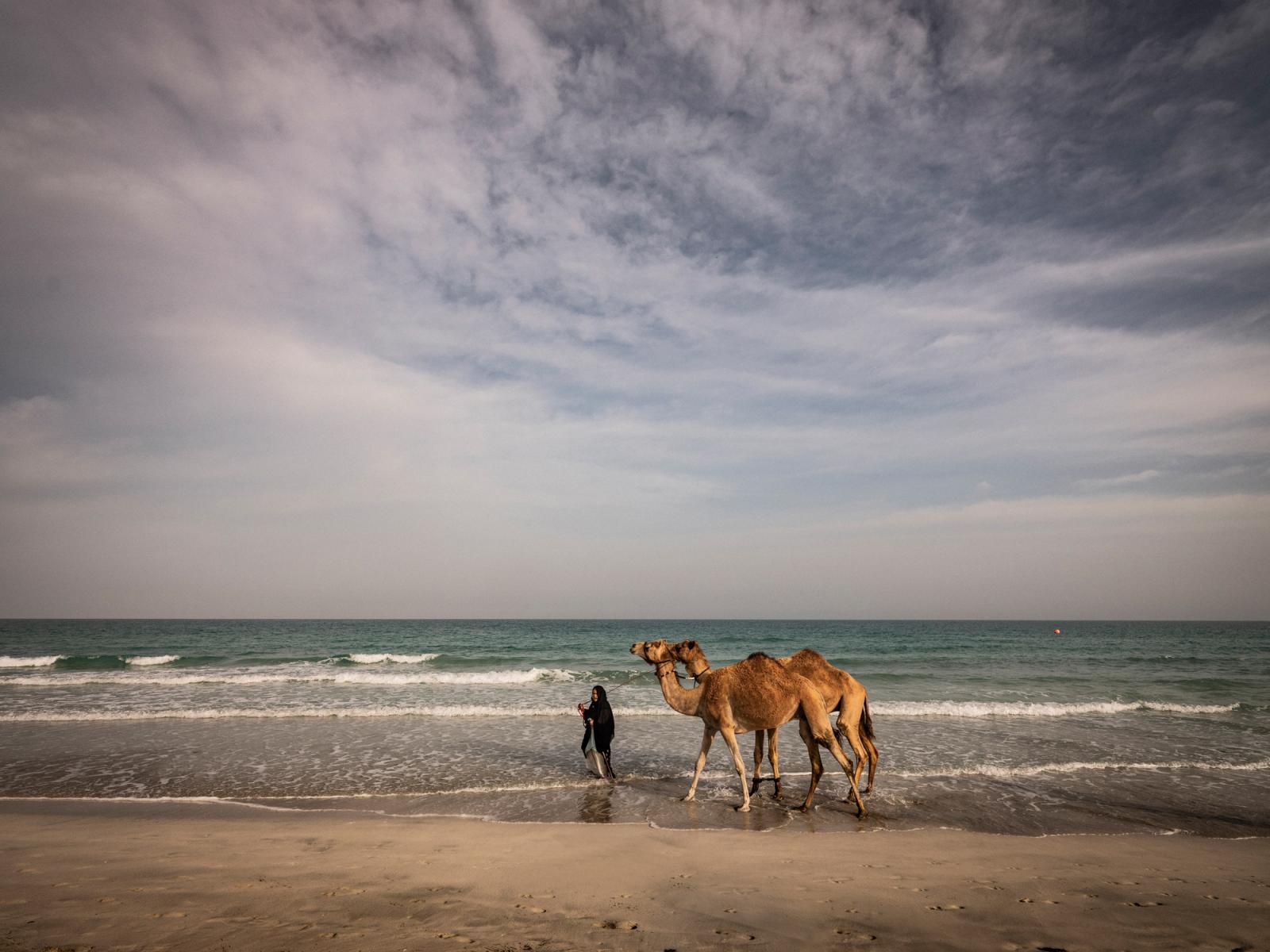Public Project
Fatima; The Camel Queen
One day in 2011, while Fatima Al Hameli sat at home watching TV, men were winning millions for their prized camels at the auctions in Liwa. A whip-smart Bedouin who had been raising camels since she and her father used to cross the desert from Liwa to Abu Dhabi over a 2-month milk and date fueled journey, Fatima saw an opportunity. She got dressed and sneaked out of the house without her sons seeing her and straight to the registration desk. The people there were aghast — this was a man’s place, and what could this old woman possibly have to do with camels? In another time, she imagines she could have been killed on sight, but because Sheikh Zayed paved the way for women’s equality in the UAE, she demanded to see the rule that said she could not be there. The manager asked if she was capable to bid, especially because she sounded so old over the phone. Not missing a beat, Fatima didn’t admit to being a day over 22.
Glittering portraits of Sheikh Zayed look up at her proudly from her wristwatch and phone case — gifts from some of her hundreds of thousands of fans on social media, who admire her for being an outlier. She wears a sheila emblazoned with the UAE flag colors, something she says that she always wears when she’s abroad.
She didn’t go to the festival to win cars and money like the men she saw there - she wanted to represent her country as a woman. She put down 10,000AED as a guarantee, and won the first camel she bid on for twenty times that.
To Fatima, this made all of the business sense in the world. If she bought a winning racing camel, he could easily be sold for up to 10 million dirhams. Her son was shocked when he heard from a friend that his mother was on TV - not only a sensation for being a woman at the auctions, but also for winning. He desperately tried to get her to answer her phone, but she was busy, standing proud in the media limelight for achieving what any man could.
Her neck and wrists dripping in diamonds and gold, she reaches into a wooden box to pull out of bottles of Oud decorated with her name in Arabic calligraphy — these are the things that keep her 15 years younger than her 55 year old younger sister she sits next to in her 10,000AED tent just off the Al Ain road — a gift from a yet another social media fan in Kuwait. She stays in the desert because under the sand is where all of the good things are — water, oil, gas, metal. She detests shopping malls and spending too much time in the city. To be away from the sand is to be a fish out of water.
In Dhafrah, where the Camel Beauty Contest is held every year in December, you can find her there with the throngs of festival attendees from all over the GCC. They wave their flags and rev the engines of their 4x4s all the way down Millions St, ending up at the champion’s tent to congratulate him (and sometimes her) on the big win.
Fatima is someone who knows how to party. People from Saudi to Paris come to her camps - blazing music from oversized speakers with flashing LED lights, eating platters of freshly slaughtered goat over heaps of rice. Women come to dance with her until it is so late that it’s early. She doesn’t care what people think about her unconventional lifestyle — Bedouins are brave and generous, and she is unabashedly who she is. She makes sure her city dwelling children know their roots, forcing them to come to the desert, even though only one takes the family camel business seriously.
The same son, who has some fame as an oud player and singer, sits proudly next to his mother. He was worried when she first saw her on TV, knowing that tradition completely contradicts what his mother does. She seems to revel in the controversy, but only to punctuate a point — as long as Allah, her Sheikh, and her family are happy, so is she. And if the people question her unconventional, yet exceptionally traditional lifestyle — she knows that Sheikh Zayed would have had her back.
3,974




























